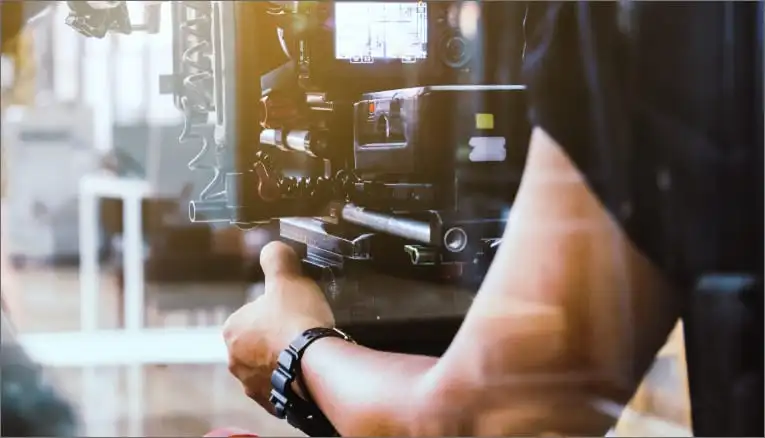Protecting Intellectual Property in Journalism
In the ever-evolving landscape of journalism, the issue of intellectual property protection has become increasingly important. With the rise of digital platforms and the ease of sharing information, journalists need to be vigilant in safeguarding their work from unauthorized use or reproduction. This article will explore the various aspects of protecting intellectual property in journalism and provide valuable tips for journalists to ensure their work is properly protected.
Understanding Intellectual Property Rights
Before delving into the specifics of protecting intellectual property in journalism, it is essential to have a clear understanding of what constitutes intellectual property. Intellectual property refers to creations of the mind, such as inventions, literary and artistic works, designs, symbols, names, and images used in commerce. In the context of journalism, intellectual property can include written articles, photographs, videos, and other forms of creative expression.
Copyright Protection
Copyright is one of the primary forms of intellectual property protection in journalism. It grants the creator of an original work exclusive rights to its use and distribution. As a journalist, it is crucial to understand the basics of copyright law and ensure that your work is protected. Copyright protection is automatic, meaning that your work is protected as soon as it is created and fixed in a tangible form. However, registering your work with the U.S. Copyright Office provides additional benefits and legal protection.
Watermarking and Metadata
One effective way to protect your intellectual property in journalism is by using watermarks and metadata. Watermarking involves adding a visible mark or logo to your work, indicating that it is protected. This can deter potential infringers from using your work without permission. Additionally, embedding metadata into your digital files can help establish ownership and provide valuable information about the work’s origin and usage rights.
Licensing and Permissions
In some cases, you may want to grant others the right to use your work while still maintaining control over its usage. This is where licensing and permissions come into play. By licensing your work, you can specify the terms and conditions under which others can use it. Creative Commons licenses, for example, offer a range of options for sharing your work while retaining certain rights. Additionally, obtaining permission from copyright holders before using their work in your journalism is essential to avoid copyright infringement.
Fair Use and Attribution
Fair use is a legal doctrine that allows limited use of copyrighted materials without seeking permission from the copyright owner. Understanding the concept of fair use is crucial for journalists, as it can provide leeway in using copyrighted material for purposes such as commentary, criticism, news reporting, or educational purposes. However, determining whether a particular use qualifies as fair use can be complex and depends on various factors, such as the purpose and nature of the use, the amount used, and the effect on the potential market for the original work. Proper attribution is also essential when using others’ work under fair use.
Digital Protection Measures
In the digital age, protecting intellectual property in journalism extends beyond traditional copyright measures. Implementing digital protection measures can help safeguard your work from unauthorized use or distribution. These measures can include using secure servers for storing sensitive information, encrypting files, and implementing access controls to restrict unauthorized access to your work.
Monitoring and Enforcement
Even with preventive measures in place, it is important to monitor the use of your intellectual property and take action against infringements when necessary. Regularly conducting online searches and using tools like reverse image search can help identify unauthorized use of your work. If you discover an infringement, reaching out to the infringing party and requesting them to cease and desist may be the first step. If the issue persists, consulting an intellectual property attorney can help you explore legal options.
Staying Updated on Intellectual Property Laws
Intellectual property laws are continually evolving, especially in the digital realm. As a journalist, it is crucial to stay updated on the latest developments and changes in intellectual property laws. This can help you adapt your protection strategies accordingly and ensure that you are adequately safeguarding your work.
Educating Others on Intellectual Property Rights
Promoting awareness and educating others on intellectual property rights is not only beneficial for journalists but also for society as a whole. By educating your colleagues, peers, and the public about the importance of respecting intellectual property, you contribute to a culture that values and protects creative work.
Seeking Legal Advice
If you encounter complex intellectual property issues or need guidance on specific cases, it is advisable to seek legal advice from an intellectual property attorney. They can provide personalized advice and help you navigate the intricacies of intellectual property law.
Key Takeaways
- Intellectual property protection is crucial in the journalism industry, especially with the rise of digital platforms.
- Copyright protection is one of the primary forms of safeguarding intellectual property in journalism.
- Watermarking and metadata can help establish ownership and deter unauthorized use of your work.
- Licensing and permissions allow you to grant others the right to use your work while maintaining control.
- Understanding fair use and proper attribution is essential when using others’ copyrighted material.
- Implementing digital protection measures and regularly monitoring your work can help prevent unauthorized use.
- Staying updated on intellectual property laws is crucial to adapt your protection strategies.
- Educating others about intellectual property rights contributes to a culture that values and respects creative work.
- Seeking legal advice is recommended for complex intellectual property issues.
To further enhance your knowledge and skills in modern journalism, consider enrolling in the “NYU | Modern Journalism” online course and certificate program offered by Yellowbrick. This comprehensive program will provide you with valuable insights and practical training to excel in the journalism industry while ensuring the protection of your intellectual property.








